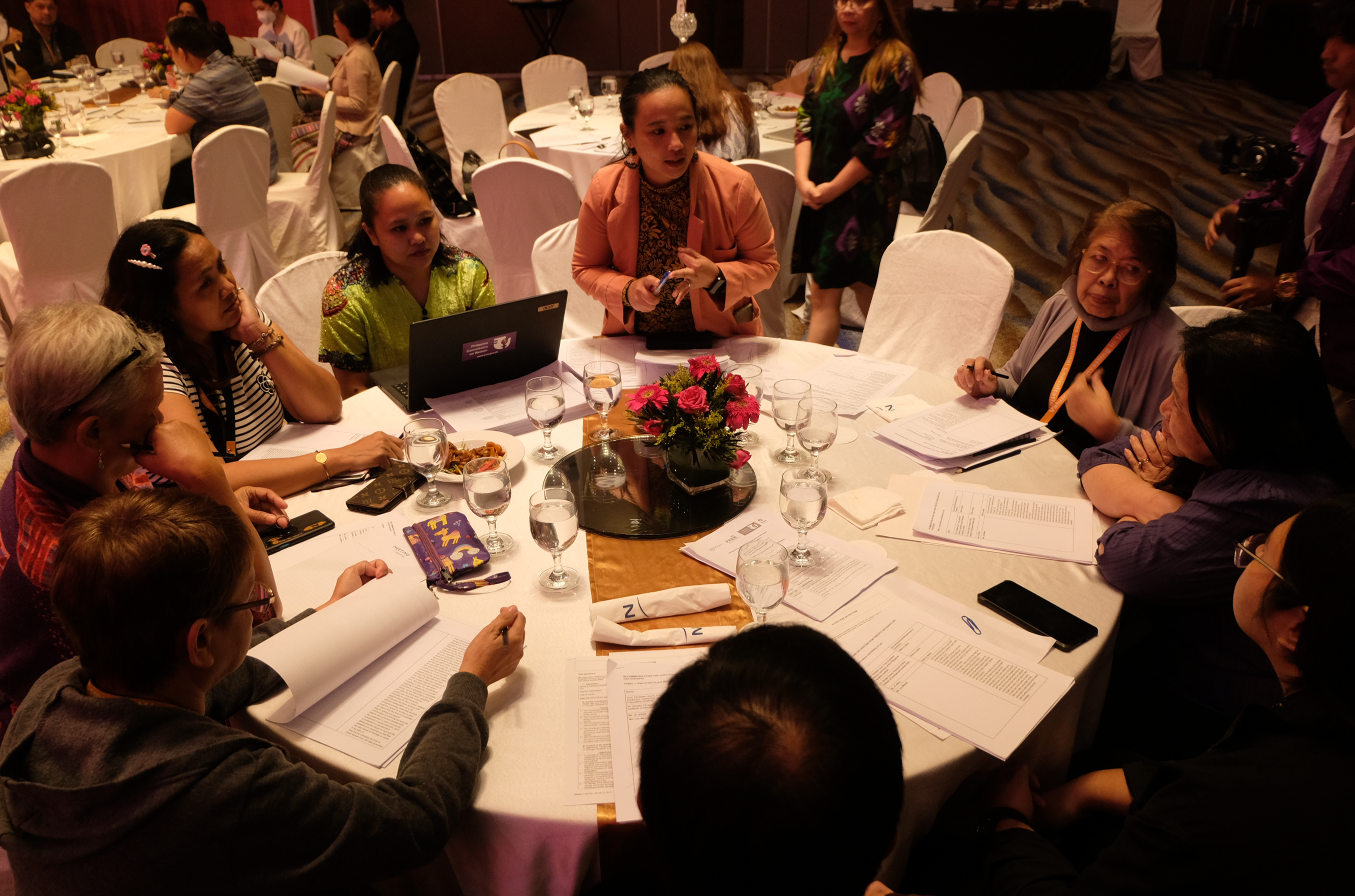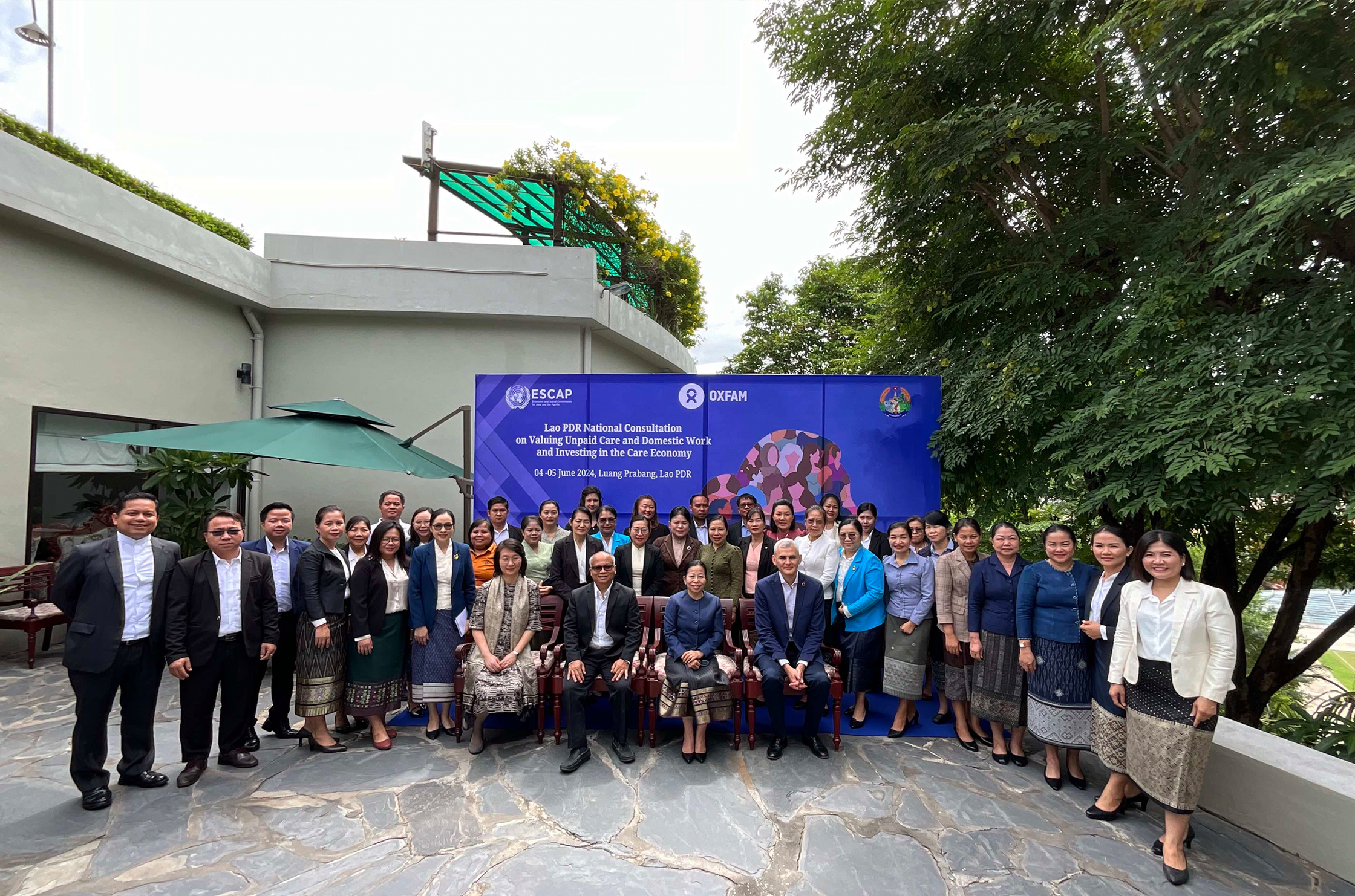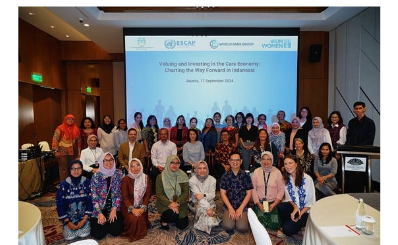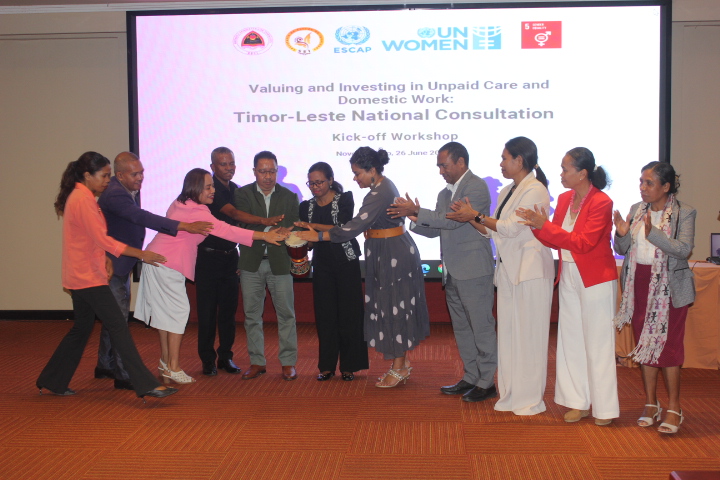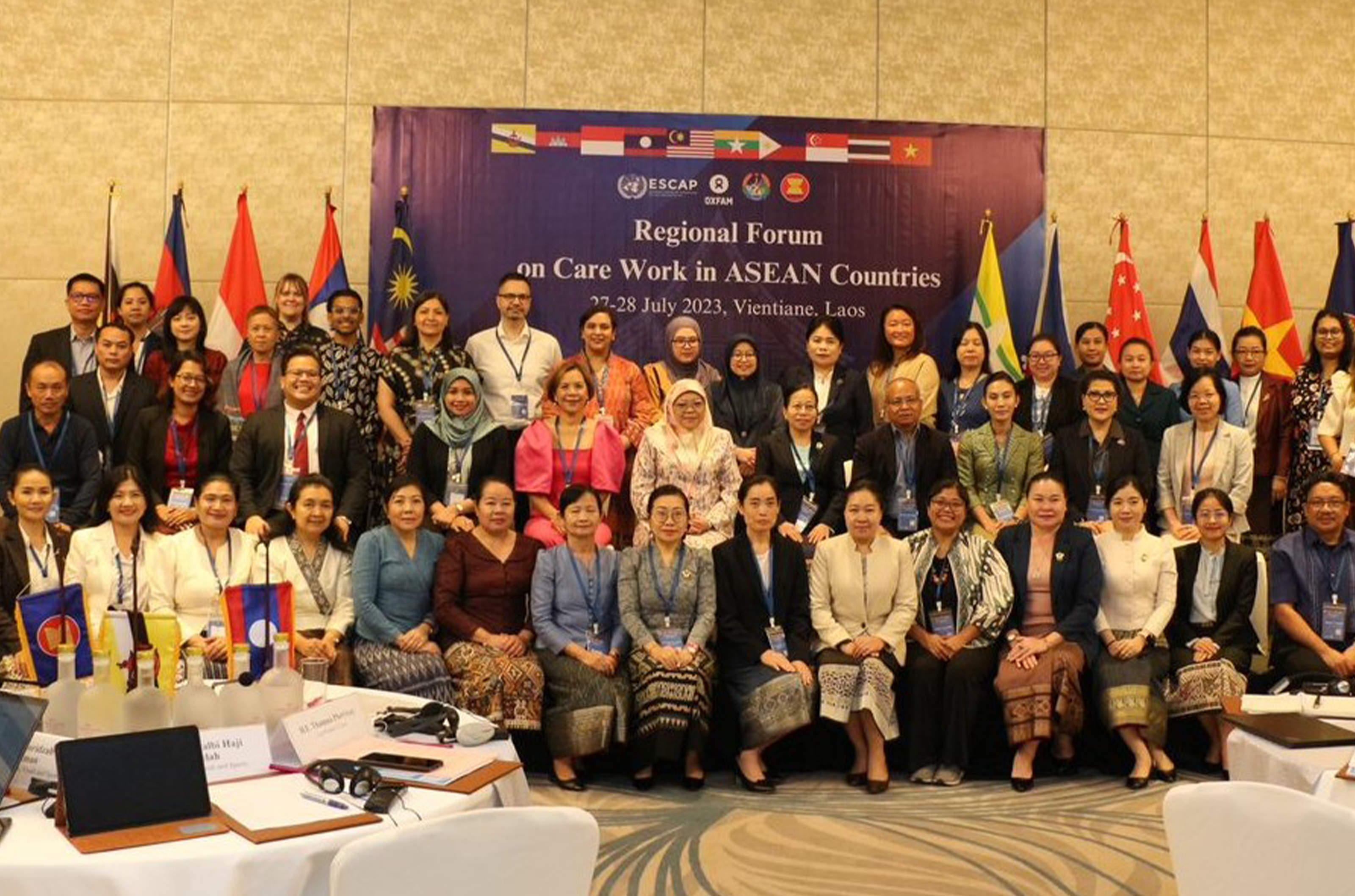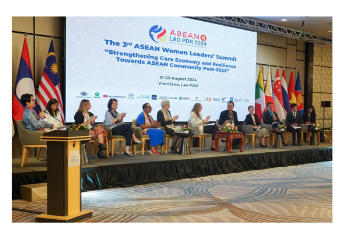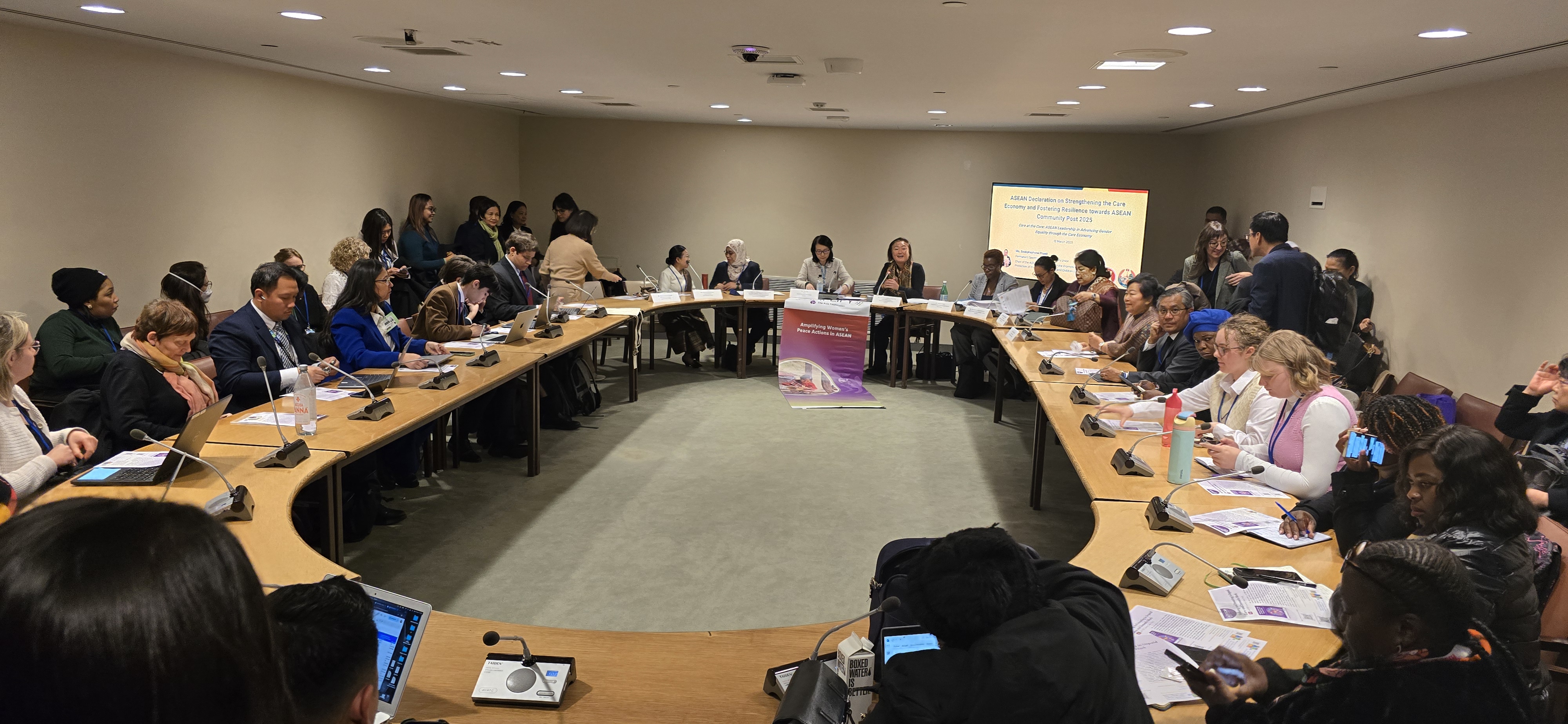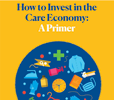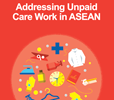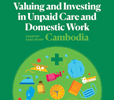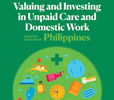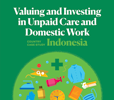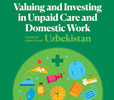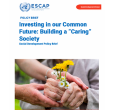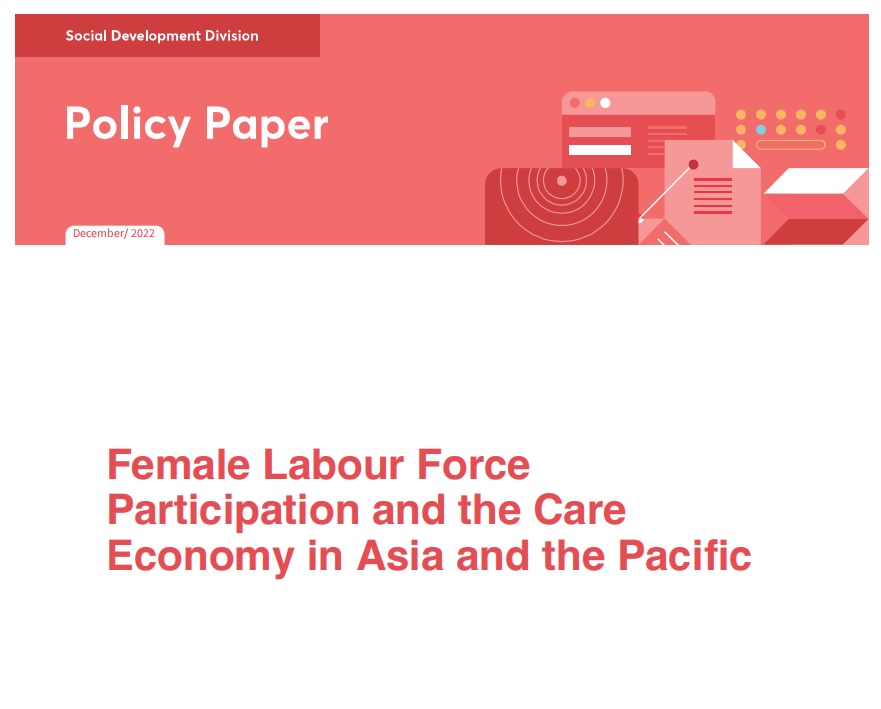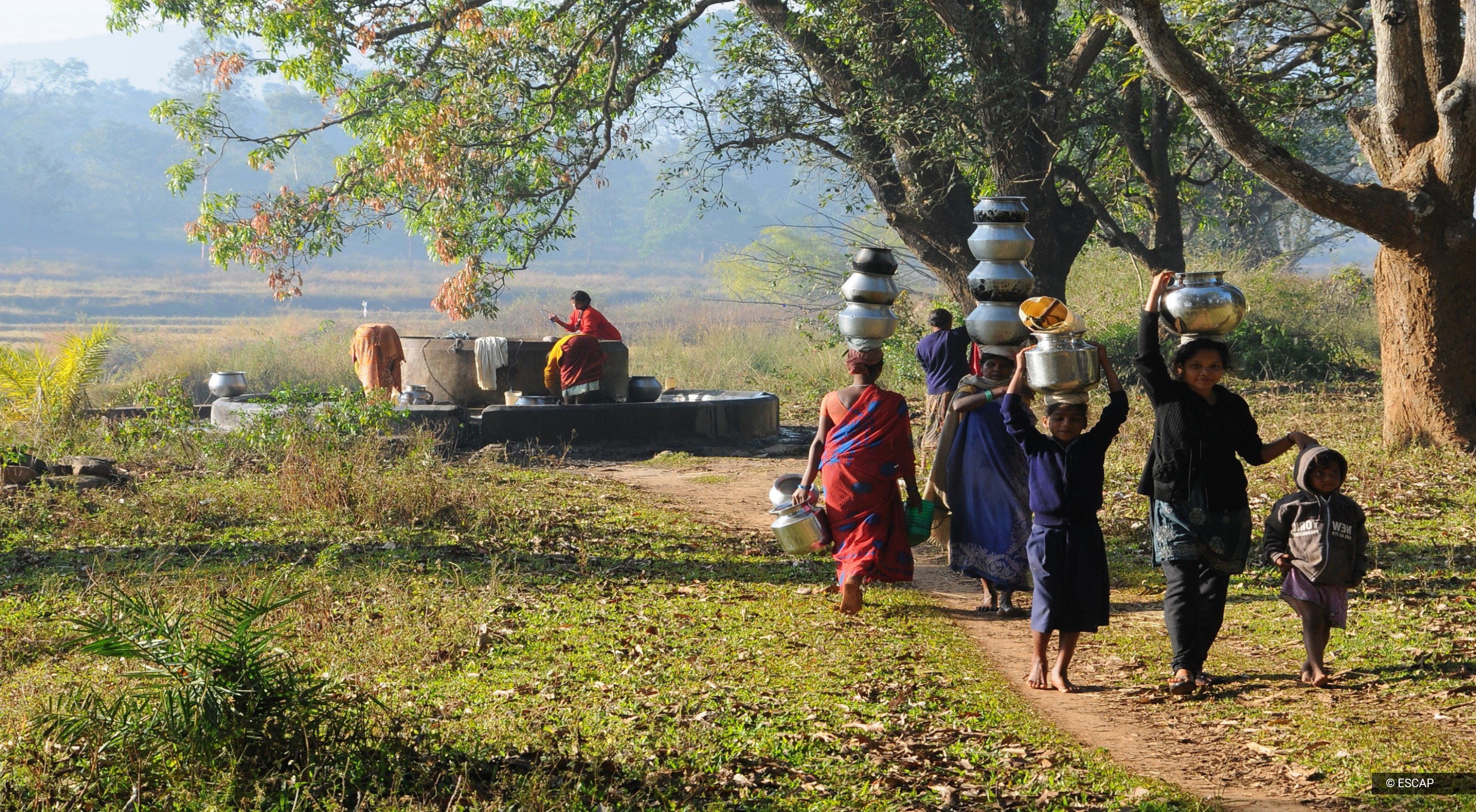
What is Unpaid Care and Domestic Work?
"Unpaid care and domestic work" encompasses a wide range of non-market unpaid activities performed in households, including direct care for dependents such as children, sick family members, older persons, and persons with a disability, as well as indirect care such as cooking food provisioning, cleaning, collecting fuelwood and water. The provision of care work is the foundation of human life and has an intrinsic value being the precondition for a thriving and sustainable economy with a productive workforce.
The disproportionate share of unpaid care work on women and girls in Asia and the Pacific - who perform two to five times more unpaid care work than men - continues to limit their economic and social empowerment. This unequal distribution reinforces gender disparities in income, leadership, career advancement, and access to decision-making. Addressing this imbalance through policies that recognize, reduce, and redistribute unpaid care and domestic work is vital to achieving gender equality and unlocking women’s full economic potential.

Our Work on Unpaid Care Work
ESCAP has established itself as a regional leader in promoting inclusive, resilient and sustainable care systems, through normative frameworks, country-level support, and regional collaboration. Our work aligns with Sustainable Development Goal 5 which focuses on “achieving gender equality and the empowerment of women and girls”, with a particular emphasis on target 5.4, to “recognize and value unpaid care and domestic work through the provision of public services, infrastructure and social protection policies and the promotion of shared responsibility within the household and the family as nationally appropriate”.
Over the past years, ESCAP has worked with governments in Cambodia, China, Indonesia, Lao PDR, the Philippines, Timor-Leste, Thailand, and Uzbekistan to develop and implement care-sensitive policies. These efforts are grounded in ESCAP’s Model Framework for Action on the Care Economy, developed with the Institute of Development Studies, which serves as the foundation for national policy development and capacity-building across the region.
The framework offers a comprehensive approach to understanding and addressing the care economy. It emphasizes the need for a holistic set of policies across four key categories: care infrastructure, care-related social protection, care services, and employment-related care policies. Beyond these policy areas, the MFA highlights three additional components essential for designing effective, gender-responsive care policies: the political economy of care, normative principles, and the levers of change. Together, these elements provide a clear roadmap for governments and stakeholders to develop care-sensitive and gender-responsive care policies.
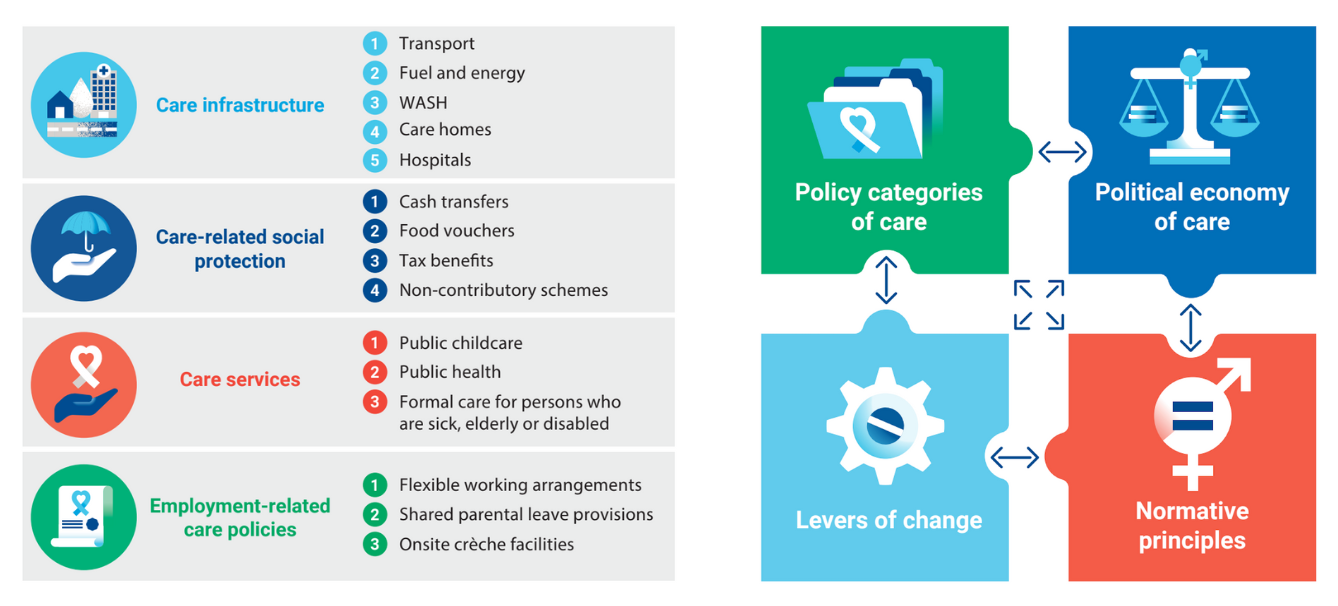
A core achievement of ESCAP’s technical cooperation support has been the successful support to national care policy initiatives. Cambodia and the Philippines are finalizing their National Action Plans on the Care Economy, incorporating policy entry points identified through ESCAP-supported consultations and aligned with gender-responsive budgeting frameworks. In Indonesia, ESCAP supported a national consultation that informed the adoption implementation of a Roadmap on the Care Economy (2025–2045). In the Philippines, subnational consultations led to the adoption of a provincial-level Care Ordinance in Quinapondan, Eastern Samar, with interest from 23 other local governments to replicate the initiative. ESCAP also contributed technical expertise to China’s first care economy policy roundtable in collaboration with Peking University.
At the subregional level, ESCAP played a key role in supporting the ASEAN Declaration on Strengthening the Care Economy and Fostering Resilience Towards the Post-2025 ASEAN Community, including drafting technical inputs, facilitating consultations, and organizing multistakeholder workshops and forums. Through ESCAP’s engagement, a structured and holistic approach to care economy issues are now more prominently featured in ASEAN’s gender equality agenda and linked to broader recovery, resilience, and economic inclusion efforts.
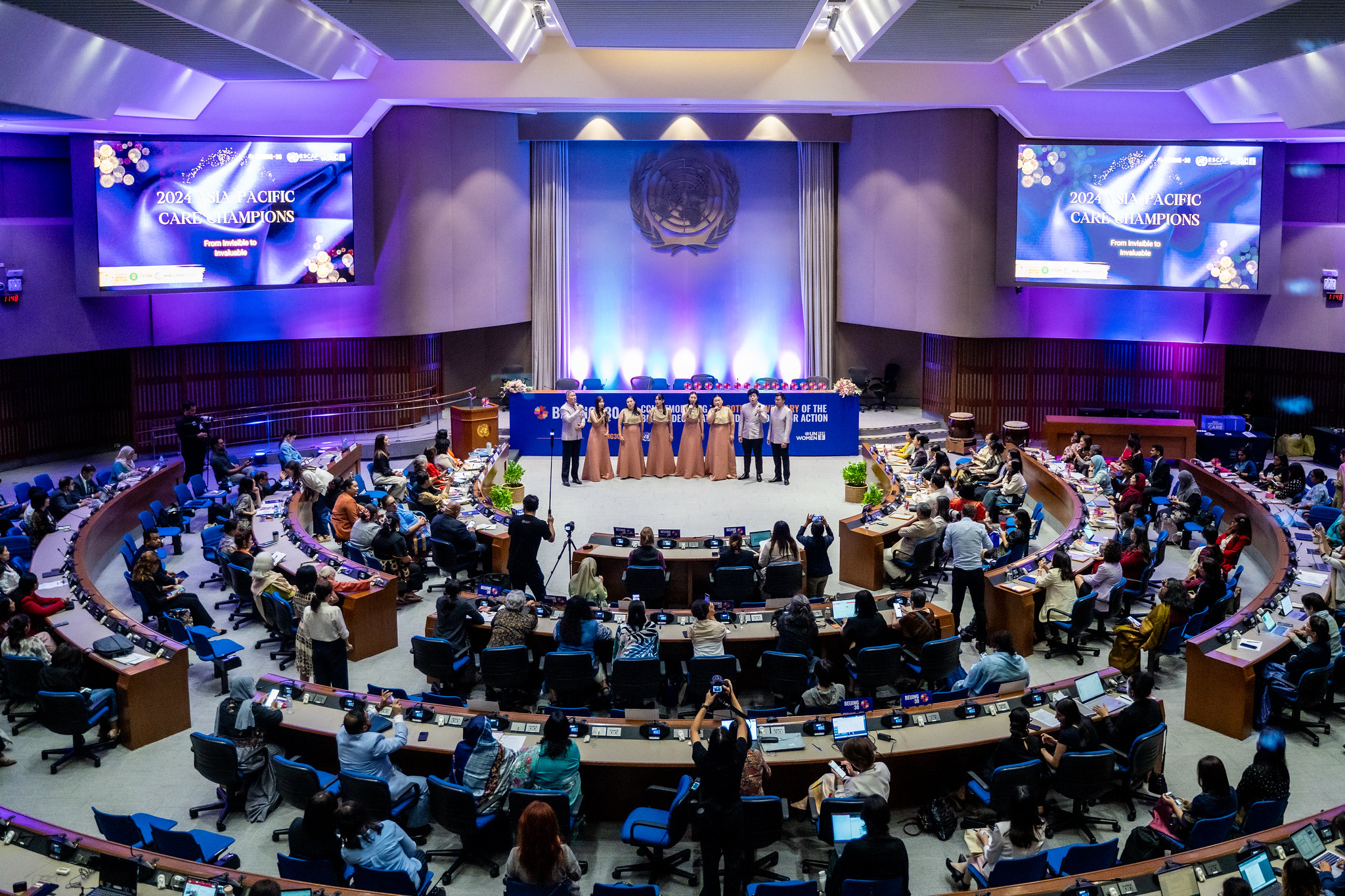
Research and advocacy
ESCAP has been at the forefront of research and knowledge production related to the care economy and has produced a suite of strategic knowledge products and toolkits.
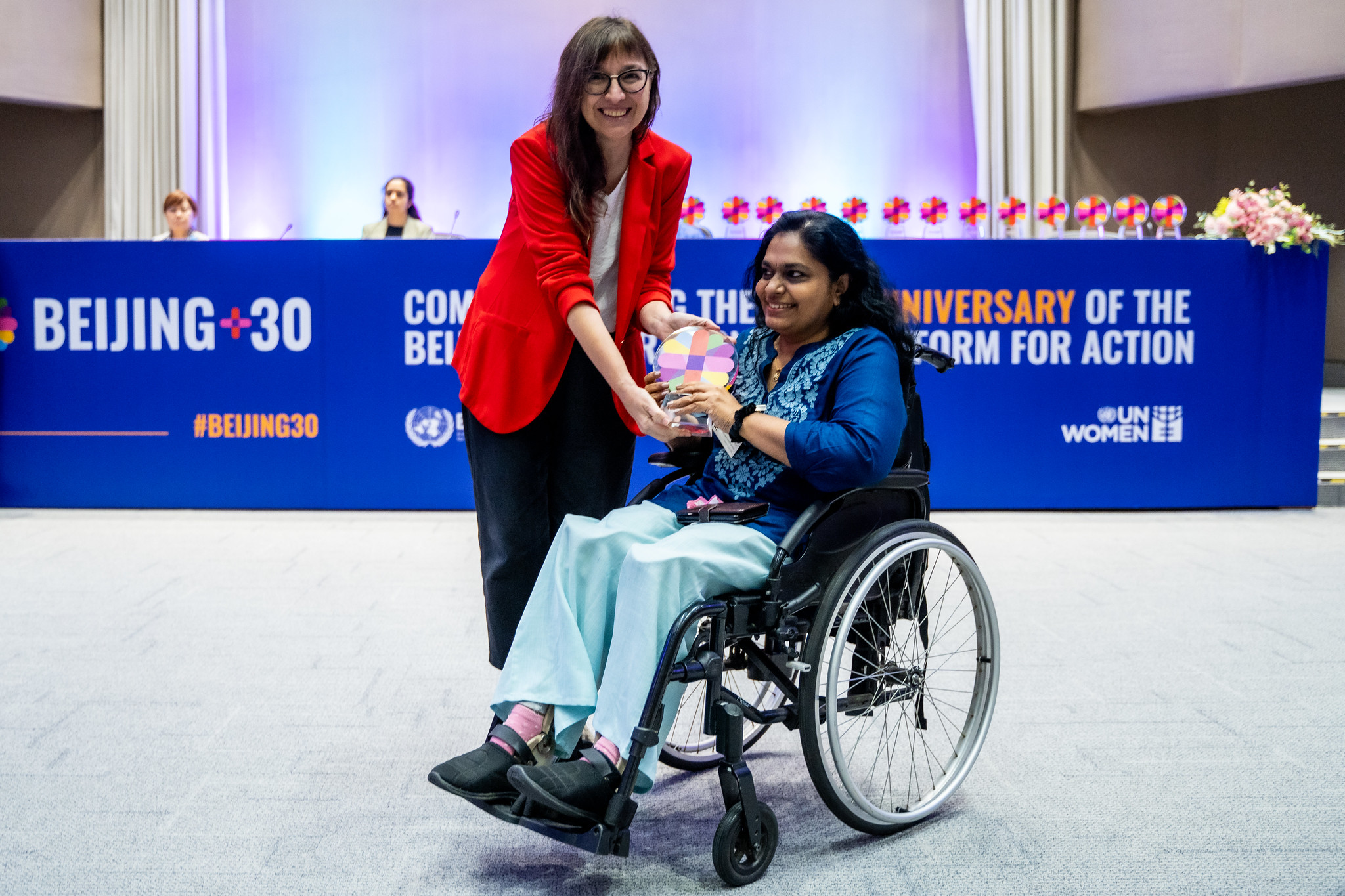
ESCAP has also convened and contributed to major regional and global platforms to elevate the care agenda. At CSW69, ESCAP organized the side event Care at the Core, where ASEAN leaders—including from Lao PDR and Timor-Leste—shared national progress. Another high-level side event, Transforming Care Systems for a Changing World: A South-South Dialogue, amplified regional voices and built momentum for global collaboration. At the 2024 Asia-Pacific Care Champions event, 30 champions were recognized for their work in care innovation, policy, and advocacy, underscoring the transformative potential of multistakeholder leadership. ESCAP’s work has catalyzed new partnerships, including with Oxfam in Asia, the Global Alliance for Care, and the ASEAN Committee on Women. ESCAP also commemorates the International Day of Care and Support, and regularly releases blogs and social media features to spotlight progress, share stories, and inspire action.
Through sustained advocacy, tailored technical support, high-level policy engagement, and a robust suite of knowledge products, ESCAP remains at the forefront of efforts to value and invest in the care economy - laying the foundation for gender-equal, inclusive, and sustainable development in Asia and the Pacific.
Our Reports



